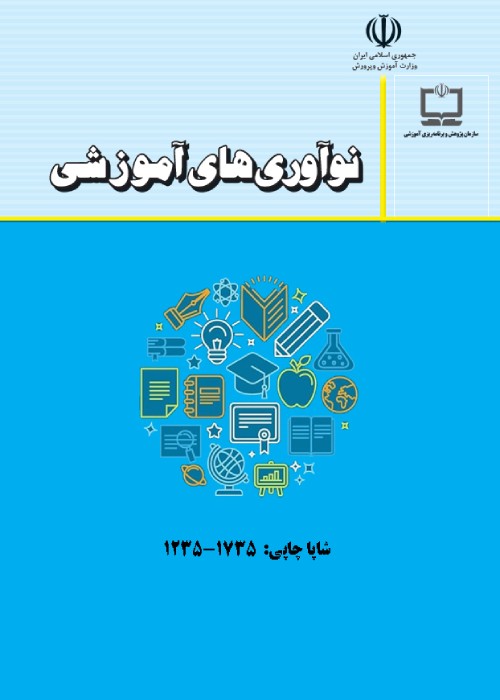Development and Designing a Model for providing qualitative feedback in assessment of school achievement
Author(s):
Abstract:
The objective of this paper is to prepare a develop a model for providing quality feedbacks to students. Importance and necessity: In order to reduce the negative impacts of quantity feedback on students" learning, as well as mental health, The deputy Minister of Education in General Education prepared a plan entitled "descriptive evaluation". After being approved by Higher Council of Education, they implemented the plan for three years, as an experimental plan, in some of primary schools in education districts throughout the country. In this plan, feedbacks were provided to students in a descriptive form and through a rating scale (orderly arranged category).Results of evaluations measured by Khoshkholgh and Sharifi (2003-2005) showed that in spite of positive impacts on improving mental health of students, "descriptive evaluation" could not affect on promoting their learning quality and even quantity; and one of the important reasons for its failure was lack of a clear model for providing feedbacks in schools. The research method that is used in this paper is quality documentary research. Statistical population consists of 3 books and 26 research papers.
Result
In answering the two basic questions of research, first, the position of quantity feedback in both behavioral and cognitive- behavioral approaches was examined, and then, basead on the constructivism approach, a clear and comprehensive definition of quality feedback was conceptualized. At end, according to the elements of the quality feedback definition, a formulated model was developed and introduced for providing feedbacks to students. In the model of quality feedback, students will interpret and declare the prepared homework by teacher on the basis of their own previous knowledge and motivational beliefs. thereafter, they will adopt personal goals and special learning strategies for themselves. In this model, students are involved in preparing feedbacks for their own learning. By orderly implementing the anticipated steps in the quality feedback model, conditions would be appropriate for students to undertake continuous self-assessment and meanwhile, reinforce their internal schooling motivation, foster their self-regulation learning, and promote the quality level of their taught.Language:
Persian
Published:
Quarterly Journal of Educational Innovations, Volume:5 Issue: 18, 2007
Page:
57
magiran.com/p461511
دانلود و مطالعه متن این مقاله با یکی از روشهای زیر امکان پذیر است:
اشتراک شخصی
با عضویت و پرداخت آنلاین حق اشتراک یکساله به مبلغ 1,390,000ريال میتوانید 70 عنوان مطلب دانلود کنید!
اشتراک سازمانی
به کتابخانه دانشگاه یا محل کار خود پیشنهاد کنید تا اشتراک سازمانی این پایگاه را برای دسترسی نامحدود همه کاربران به متن مطالب تهیه نمایند!
توجه!
- حق عضویت دریافتی صرف حمایت از نشریات عضو و نگهداری، تکمیل و توسعه مگیران میشود.
- پرداخت حق اشتراک و دانلود مقالات اجازه بازنشر آن در سایر رسانههای چاپی و دیجیتال را به کاربر نمیدهد.
In order to view content subscription is required
Personal subscription
Subscribe magiran.com for 70 € euros via PayPal and download 70 articles during a year.
Organization subscription
Please contact us to subscribe your university or library for unlimited access!


